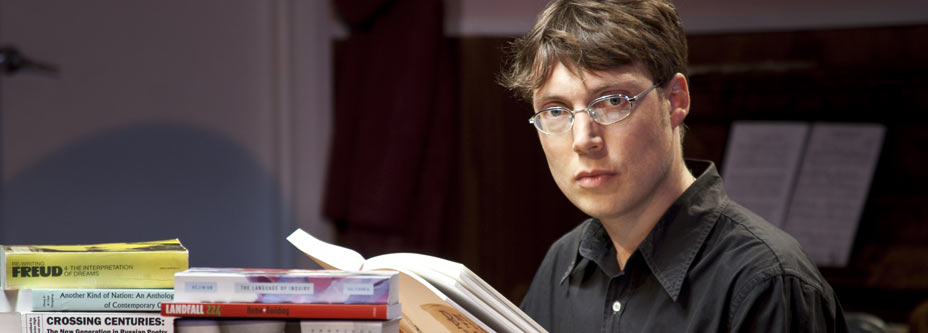
Poetry and global change
Poetry is often associated with love and loss, but Dr Jacob Edmond (Department of English) says the language of poetry and the stories of its creators can provide new frameworks for understanding both personal and global change.
Central to his recent book, A Common Strangeness: Contemporary Poetry, Cross-Cultural Encounter, Comparative Literature (Fordham University Press, 2012), is the idea that poetry offers “untapped tools” for reconceptualising our world – its political catastrophes, national dislocations and promises of cultural renewal.
In the book, Edmond investigates how Cold-War mentalities have come to shape the language of globalisation.
“I argue that many conceptual paradigms – both literary and otherwise – haven't kept pace with changes in the world and fall back on the old language of East and West.
“A feature of the language of globalisation is the persistence of simplistic binaries such as local or global. These binaries obscure the complex historical processes and individual stories behind geopolitical and economic change.”
Among other examples, Edmond uses work by Chinese poet Yang Lian – specifically poems penned in Auckland in the late 1980s and early 1990s – to expand on the modernist idea that the strangeness of the literary work can renew, challenge or alter perceptions of the world.
“These works link estranging urban change, and linguistic and cultural dislocation to the traumatic conclusion to the Tiananmen Square protests of 1989 and the dramatic economic and political shift that occurred in China – and the world – at that time.”